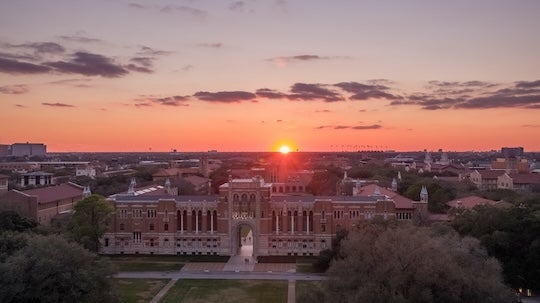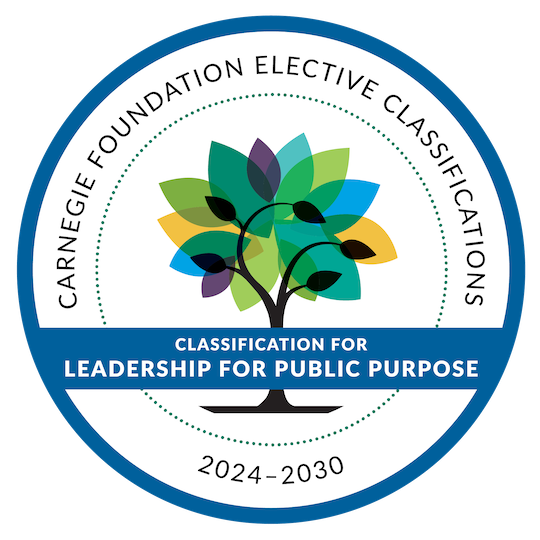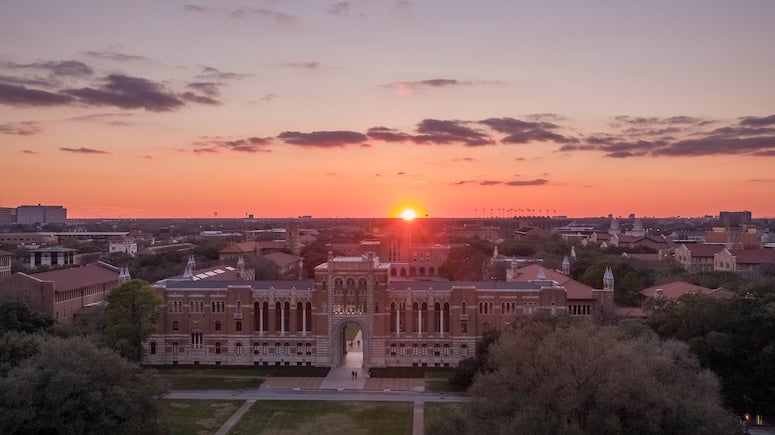Rice University is one of 25 U.S. colleges and universities to receive the first Carnegie Leadership for Public Purpose Classification.
This elective designation is awarded by the American Council on Education (ACE), the Doerr Institute for New Leaders at Rice and the Carnegie Foundation for the Advancement of Teaching. The classification recognizes institutions that have committed to campuswide efforts to advance leadership in pursuit of public goods like justice, equity, diversity and liberty.

“This accomplishment is the result of the university’s efforts in focusing on the importance of developing students as leaders,” said Bernie Banks, director of the Doerr Institute. “This recognition is justly deserved because of those collective commitments from faculty, staff and administration at Rice.”
Representing 19 states across the U.S., 13 of the 25 institutions classified in the inaugural 2024 cycle are public institutions, 10 are private and two are service academies. Seven are Minority Serving Institutions (MSIs) with one MSI also designated as an Asian American and Native American Pacific Islander-Serving Institution.
“For several years the Doerr Institute for New Leaders has substantively supported the American Council on Education and the Carnegie Foundation’s collaborative efforts to establish the classification,” Banks said. “We are excited about continuing such efforts in service of improving higher education’s commitment to fostering integrated and intentional leader development for students.”
“Congratulations to these pioneering recipients of the inaugural Carnegie Leadership for Public Purpose Classification,” said Carnegie Foundation President Timothy F.C. Knowles. “These institutions have demonstrated a relentless commitment to fostering leaders dedicated to the pursuit of vital public goods. Students from these institutions will undoubtedly shape a brighter future for us all, upholding fundamental American values and advancing opportunity for the nation.”

The elective classifications provide an independent and rigorous assessment of an institution’s commitment to, investment in and accomplishment at addressing pressing issues of the societies they serve. There are currently two elective classifications that institutions in the United States can pursue: Community Engagement and Leadership for Public Purpose (LPP).
The Doerr Institute began its role in forming the initiative in January 2020 when more than 30 leadership experts representing colleges and universities from around the country convened on Rice’s campus. The meeting gathered a broad range of institutions — public, private and community — as part of the Consortium for Improvements in Leadership Education and Development to examine the existing field and draft a proposal for the LPP classification, which builds on the success of the Carnegie Foundation’s Community Engagement Classification.
“This classification is a significant step forward for higher education. It highlights the importance of developing leaders who are driven to make a positive social impact,” said Carla Ortega-Santori, strategic initiatives manager of the Doerr Institute. “By recognizing institutions committed to this mission, this classification will inspire a new wave of innovation and collaboration across colleges and universities.”
The Australian version of the Carnegie Classification for Community Engagement was recently launched, and Canada is set to launch its own version.

